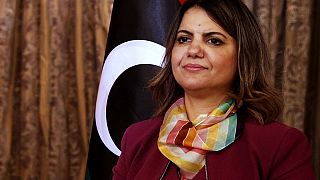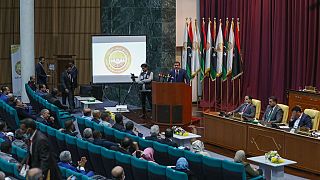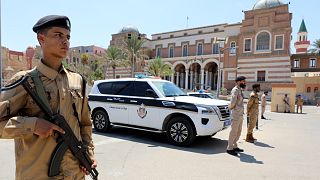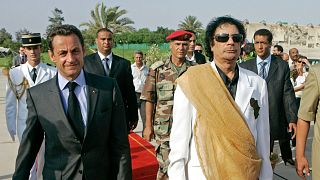Libya
Libya's new Prime Minister Abdul Hamid Dbeibah was sworn in to lead the North African country's transition to elections in December, after years of chaos and division.
Dbeibah was sworn in alongside other members of the new unity government parliament in Tobruk city in eastern Libya.
"I swear to God that I will perform my work duties with all honesty and loyalty and always remain loyal to the objectives of the February 17 revolution, to respect the constitution and the Constitutional Declaration, and to protect the interests of the Libyan people," Abdul Hamid Dbeibah, Libya's new Prime Minister told the parliamentarians.
The country descended into conflict after dictator Moamer Kadhafi was toppled and killed in a NATO-backed uprising in 2011, resulting in multiple forces vying for power.
Last week, the Libyan parliament granted a vote of confidence to Dbeibeh’s government with 132 votes of the 133 lawmakers who attended the session.
Dbeibah's swearing-in comes after parliament last week approved his cabinet, in a move hailed by key leaders and foreign powers as "historic".
His government includes two deputy prime ministers, 26 ministers and six ministers of state, with five posts including the key foreign affairs and justice portfolios handed to women, a first in Libya.
"This will be the government of all Libyans," Dbeibah said after the vote. "Libya is one and united."
Dbeibah's administration is expected to replace both the UN-recognised Government of National Accord, based in Tripoli, and a parallel cabinet headquartered in the east, under the de facto control of forces of military strongman Khalifa Haftar.
Turkey has backed the GNA, while Haftar's administration has drawn on support from the United Arab Emirates, Egypt and Russia.
Outgoing GNA head Fayez al-Sarraj has said he is "fully ready to hand over" power, while Haftar last month offered "the support of the armed forces for the peace process".
But the new executive faces daunting challenges to unify the country's institutions, end a decade of fighting marked by international interference and prepare for elections on December 24.













02:35
Sudanese Refugee Children Find Hope in Libyan School
Go to video
France: seven-year sentence and fine suggested for Sarkozy over Libya financing deal
01:04
Sarkozy faces 10 Years in prison in Libyan campaign trial
01:00
Libya uncovers 50 migrant bodies in mass graves
00:50
Meloni under investigation for alleged aid to Libyan warlord
01:20
Italy says expelled wanted Libyan warlord because he posed 'danger'